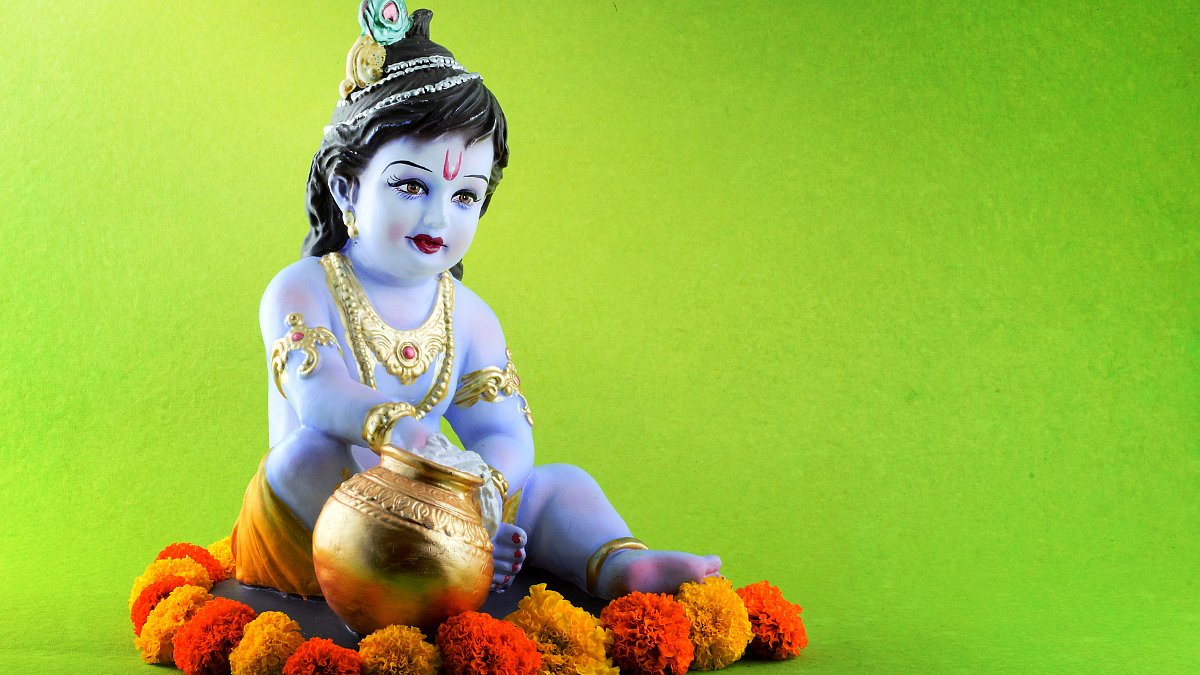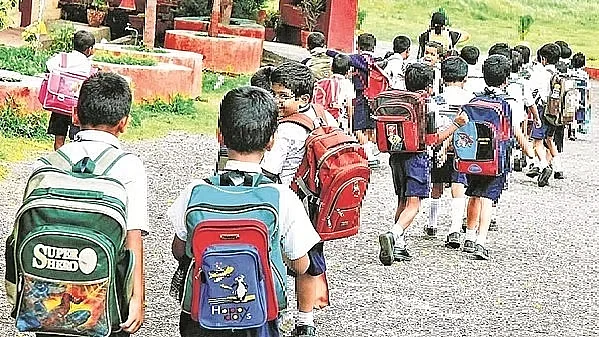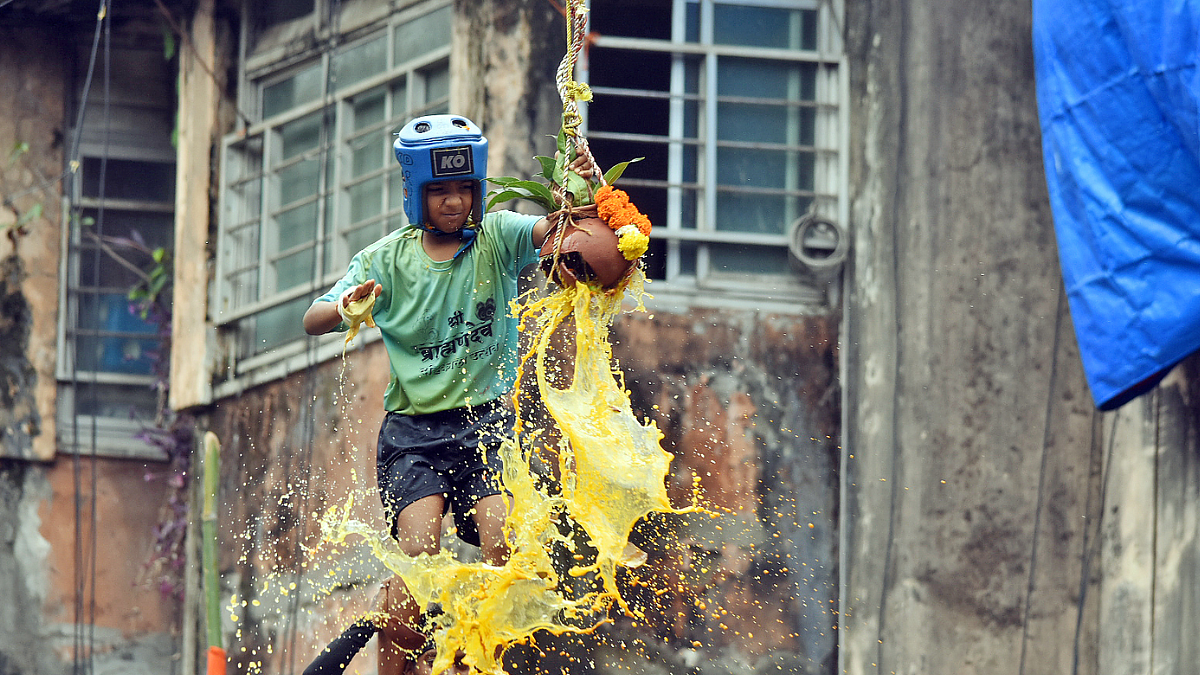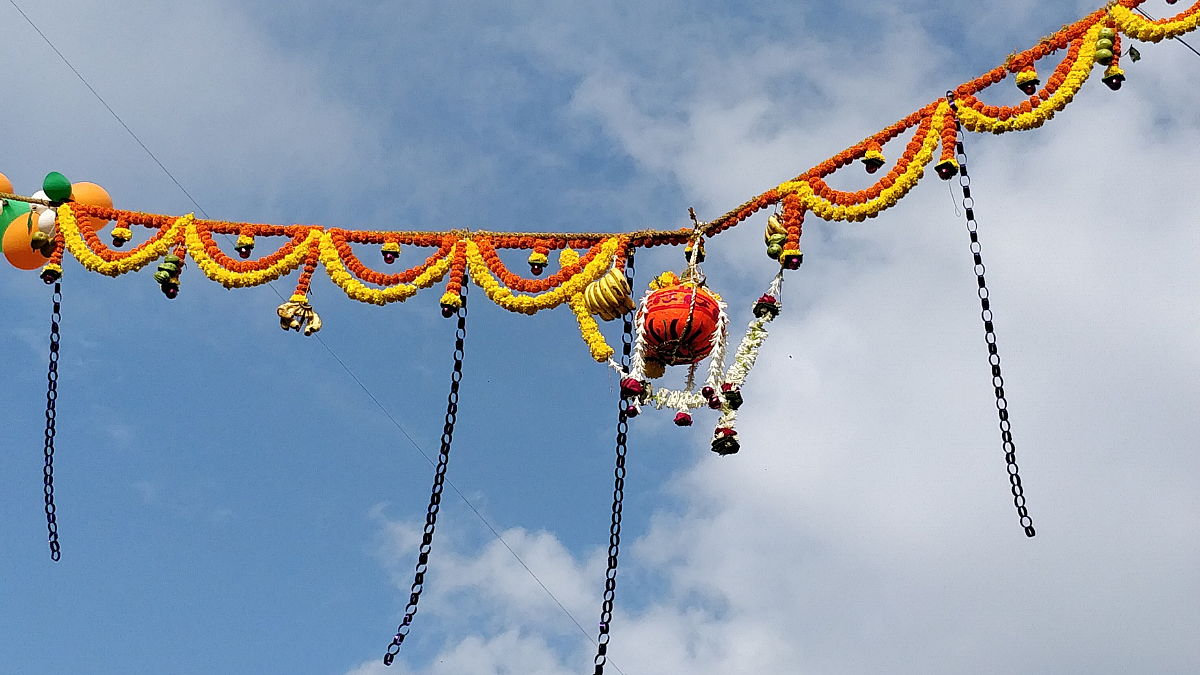Every year, Krishna Janmashtami fills streets, temples, and homes with music, devotion, and the joy of celebration. Marking the birth of Lord Krishna, this two-day festival is observed with fasting, midnight prayers, and the thrilling spectacle of Dahi Handi, especially in Maharashtra. In 2025, the festival will fall on August 15, as per Drik Panchang.

Canva
The real story behind Janmashtami
Janmashtami is celebrated to honour the birth of Lord Krishna, who is revered as the eighth avatar of Lord Vishnu. It is believed that he descended to Earth to restore balance and righteousness (dharma). The name "Janmashtami" is derived from two Sanskrit words: "Janma," meaning birth, and "Ashtami," meaning the eighth day. This is because Krishna was born on the eighth day of Krishna Paksha in the month of Bhadrapad according to the Hindu lunar calendar.
According to the story, Krishna was born in the city of Mathura to Queen Devaki and King Vasudeva during a time when the world was in fear and injustice under the cruel rule of King Kansa, Devaki’s brother. A prophecy warned that Devaki’s eighth child would be the cause of Kansa’s downfall.
In a desperate attempt to fight fate, Kansa imprisoned the couple and killed each of their first six newborns. Miraculously, the seventh child, Balarama, was transferred to the womb of Rohini, Vasudeva’s other wife, saving him from Kansa’s wrath.
When Krishna, the eighth child, was born at the stroke of midnight, divine forces intervened: his shackles fell off, the prison doors swung open, and the Yamuna River parted to allow Vasudeva to carry the infant to safety in Gokul. There, Krishna was raised by Yashoda and Nanda, growing up to embody love, wisdom, and playfulness. In adulthood, he fulfilled the prophecy by defeating Kansa, symbolising the eternal triumph of good over evil.
Thus, Janmashtami is not just a celebration of Krishna’s birth but also a remembrance of the hope, courage, and divine justice that his life represents.

Why Dahi Handi?
The second day of Janmashtami celebrates Krishna’s mischievous love for butter and curd. Known as the Makhan Chor, young Krishna would gather his friends to form human pyramids, stealing pots of dairy treats hung high to keep them out of reach.
Today, this playful act is recreated as Dahi Handi, “curd pot” in Hindi, where teams climb atop one another to break a butter- or curd-filled earthen pot tied high in the air.












